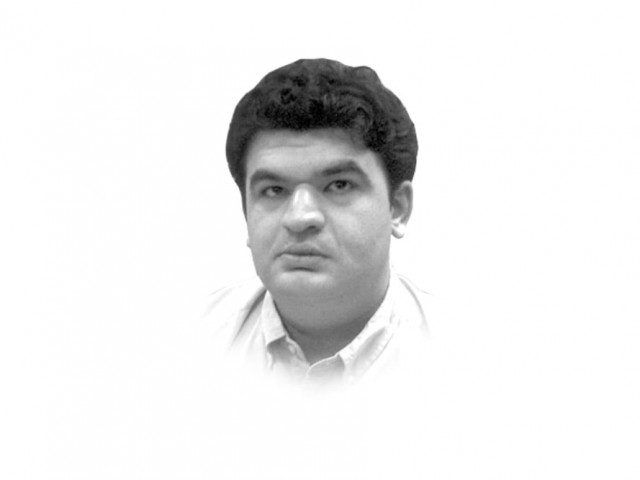The security paradox
Despite lamentations against the Taliban, we expect politicians will be safe without causing disruption to the public.

Nowhere is this more evident than in our obsession with the level of security politicians provide themselves. Usually, we find it has crossed the borders of excessive and shows nothing more than the vanity of the politician involved. Really, we say to ourselves, is it necessary for President Asif Zardari to cordon off the entire road leading up to, and beyond, Bilawal House? This is usually followed by a supposedly witty remark invoking familiar phrases like ‘Mr 10 per cent’ and ‘Mrs Bhutto’.
A few times a year we dance to a different tune. This happens only when a politician, or someone close to him or her, is targeted or killed. When Pervez Musharraf and Shaukat Aziz survived multiple assassination attempts and when Sherry Rehman was given only two rather than 16 police guards, we all cried ourselves hoarse screaming ‘security lapse’. Now, many also want Musharraf held criminally liable for not providing Benazir Bhutto with sufficient security.
Such a response is childish in its immaturity. No matter how hard the government tries to balance responsibility to representatives of the state with causing minimal disruption to individuals, it will never be able to strike a perfect balance. Security, by its very nature, is an inexact science. Provide too much of it and it can cause resentment amongst a population that itself is insecure; be slightly lax and it gives terrorists a morale-boosting victory.
The government’s task is made even harder by the instinctive response of the people who elected it. When Khyber-Pakhtunkhawa Information Minister Mian Iftikhar’s son was killed in a militant attack, it was a sign of an ineffectual state that was unable to protect the helpless. At the same time, when other politicians’ sons are given bulletproof cars and VIP security, it is decried as the actions of a spoiled and corrupt elite.
In an article he recently wrote for The Atlantic, journalist Marc Ambinder described how the US Secret Service provided protection to over 200 heads of state who converged in New York City for the inaugural session of the United Nations General Assembly. Preparations are made nearly a year in advance, yet they are never perfect. Ambinder described how a photographer from the paparazzi was able to breach their meticulous security to snap a shot of French President Nicolas Sarkozy, in the process, spooking his security detail.
There are fewer would-be assassins prowling Times Square than there are looking for a worthy target in Pakistan. Yet, despite our many indignant lamentations against the Taliban and its prowess, we somehow expect that politicians will be kept safe without causing any disruption to the general public. The belief that this can be done is about as realistic as the hope that Shahid Afridi’s boys will somehow go on to lift the World Cup.
Our response to the security that is provided to politicians and those around them is a curious mixture of Hamlet and George W Bush. Our views on the matter are uncertain, changing as they do with the events of the day. Yet, whatever opinion we hold on any given day, we will voice with absolute conviction that yields to no logic or rationale.
Published in The Express Tribune, February 24th, 2011.















COMMENTS
Comments are moderated and generally will be posted if they are on-topic and not abusive.
For more information, please see our Comments FAQ